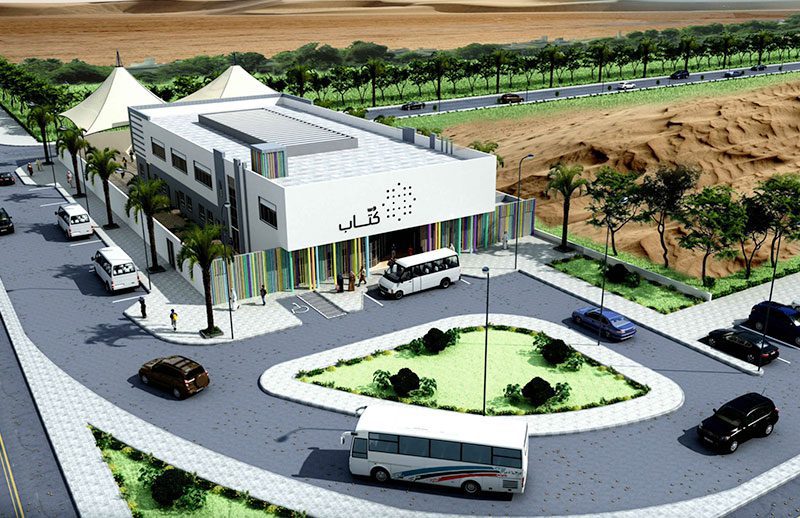Recently, I participated in the Global AI Summit, organized by the Saudi Data & AI Authority (SDAIA) and anchored in the year of Saudi Arabia’s presidency to the G20 as an imperative of its digital economy agenda. The Kingdom of Saudi Arabia is currently reinventing itself as a global pioneer in Industry 4.0, leveraging AI for a fully sustainable and digitally driven future. His Royal Highness Prince Mohammed bin Salman bin Abdulaziz, the Crown Prince, Stated in the Summit’s opening remarks “The year 2020, undoubtedly, has been an extraordinary year to test the potential of AI, as we witness the formation of a new global normal that is redefining our ways of life, working and learning…I hereby invite all dreamers, innovators, investors and thinkers to join us, here in the Kingdom, to achieve our ambitions together and to build a pioneering model; to unlock the value of data and AI in order to build knowledge-based economies and advance our present and future generations.” This article summarizes key takeaways from the Summit, and how the Kingdom of Saudi Arabia is leading as a global player in AI.
The KSA is positioning itself as the new and innovative platform for international collaboration on AI, with the launch of its flagship Global AI Summit, and a number of international outreach initiatives with the World Bank, ITU and UN. The significance of this Summit cannot be understated: it has set a new and positive tone for AI dialogues that focus on the possibility of unlocking “AI for the good of humanity,” which happened to be the Summit’s official theme. It was clear throughout the Summit that the international AI scene is becoming crowded with major international organizations trying to solve similar problems in AI, including ITU, UNESCO, OECD and even the UN itself. According to Dr. Akram Awad, Principal at BCG, UAE, and Visiting Professor and IE Business School, who participated at the Summit, “The dominating tone in the Summit was cautious hope––predominantly positive dialogues between advanced and developing nations, between tech giants and social entrepreneurs, and between government leaders and organizations holding the balance of power in the world.”
Strategic Global Participation
Because of the significance of the global “AI for good” message, a number of renowned figures participated, including 7 leaders from international bodies and 8 AI and digital ministers, and some of the world’s biggest business leaders, thought leaders and philanthropists.
Joining the Summit was ITU Secretary-General Houlin Zhao, the World Bank’s Vice President for Infrastructure, Makhtar Diop, United Nations Secretary-General’s Special Advisor Fabrizio Hochschild and the OECD’s Director of Science, Technology and Innovation Andrew Wyckoff. In addition, also participating was The UAE’s Minister of State for Artificial Intelligence, Digital Economy and Remote Work Applications, Omar Al-Olama, Singapore’s Senior Minister of State in the Ministry of Communications & Information, Dr Janil Puthucheary, South Africa’s Minister of Communications and Digital Technologies Stella Ndabeni-Abrahams, Masayoshi Son, Founder and CEO of Softbank, Stephen Schwarzman Chairman and CEO of The Blackstone Group, and Dr Peter Diamandis, Founder and Chairman of the X Prize Foundation.
Approach on National AI Strategies
A number of countries also emerged in the Summit as potentially strong future AI innovation powerhouses with concrete plans and initiatives to drive the topic holistically such as Singapore, Estonia and UAE, along with the hosting nation KSA, which launched its comprehensive National Strategy for Data and AI at the opening of the summit. There was also strong recognition among representatives from Africa and Latin America that their nations need to do more on AI in order to close the gap and have a share of its benefits and impact.
Furthermore, Covid was a key topic and issue throughout the Summit, which accelerated the dependency on AI to support the pandemic fighting efforts. Moreover, AI and digitalization will likely play a bigger role in the post-pandemic new normal and beyond as the world can expect to face other major disruptions in the future.
All-inclusive Approach on Trust, Ethics and Fairness
Many discussions are looking far beyond the pandemic and exploring a new future for AI focused on responsible and open innovation with the right harmony and balance between trusted AI and misuse of AI. Another major theme that was covered is the future of work and jobs. Given WEF’s recent estimates, which were published at the same time of the Summit, 85 million jobs will be eliminated globally by 2025 while 97 million created, mostly in the space of AI, automation, IoT and cybersecurity.
On the new future, His Excellency Dr. Abdullah Al-Ghamdi, President of SDAIA Saudi Authority for Data and Artificial Intelligence at the Summit, stated: “We in KSA see an opportunity for a fresh and positive perspective that elevates international collaboration over competition and emphasizes the potential benefits with the responsible application of AI, in science, in businesses, in governments and even in art … We took it upon ourselves to be the best example globally in using AI for the development of a nation … The National Strategy for Data and AI sets the direction and foundations upon which we will unlock the potential of data and AI to fulfil our national transformation priorities and establish Saudi Arabia as a global hub for data and AI.”
Importance of AI Democratization
There was an additional discussion on the democratization of AI. Sri Ambati, founder and CEO of H2O.ai and one of the Global AI Summit speakers, who created his company with a vision to democratize AI for everyone and created H2O, the leading open-source data science and machine learning platform, said something very powerful: “We are democratizing intelligence and being present where it’s most needed.”
Some New Global AI Governance Models Emerged
A number of contrasting views surfaced in some of the Summit sessions. For example, in a special expert consultation with the UN on establishing a UN AI Advisory Body, some of the participants supported UN’s view of maintaining the advisory and expertise-sharing nature of the body. Moreover, there were also strong voices to establish an enforcing regulator similar to WTO to organize AI globally.
On new models, His Excellency Eng. Abdullah Al-Swaha, Minister of Communications and Information Technology at the Summit, added, “We have a very unique opportunity with the convolution of connectivity, big data and artificial intelligence to democratize healthcare in such a way that we could empower every citizen on the face of earth to have early health care checking systems.”
The Way Forward
According to my discussion with Dr. Akram Awad, Principal at BCG, UAE, and Visiting Professor and IE Business School, a number of significant, timely and actionable outputs and lessons came out from the Summit.
Saudi Arabia has emerged as a competitive global player in AI for good
“In the middle of heated competition on AI leadership between the US and China, other nations such as Saudi Arabia are well positioned to drive a more balanced discussion bringing all parties on one table to shape the future of AI, humankind’s best invention, together.”
Strong and positive commitment demonstrated in 2 important global initiatives
“The hosting nation, Saudi Arabia, also showed a strong commitment to the positive spirit of the Summit and launched two important initiatives, one with ITU to accelerate AI best practices knowledge sharing globally, and another with the World Bank to advance AI in underdeveloped countries and “leave no one behind” on AI.”
The launch of the Global AI Summit serves as a testament to the kind of pioneering innovation that is in store for the world. It recognized the potential of AI and path to Sustainable Development
“The Summit dialogues recognized the potential of AI, and by extension data, to solve many of the world’s most pressing challenges and accelerate the path to Sustainable Development. At the same time there was clear acknowledgement of the challenges of the widening digital and AI gap between the north and south, and the need to address this gap before AI can truly contribute to equalizing socioeconomic benefits distribution among the nations.”
Human centricity is very critical to creativity and growth in AI
“We need objective human-focused discussions that elevate collaboration above competition and focus on sharing the knowledge, technology and expertise to unlock the value of AI for all. Thankfully, most of the scientific and entrepreneurial community aren’t paying attention to the negativity around AI and focusing on impact creation. “
Lastly, the KSA should serve as a catalyst to governments everywhere regarding the power of artificial intelligence to augment society and reinvent the future digital economy.





